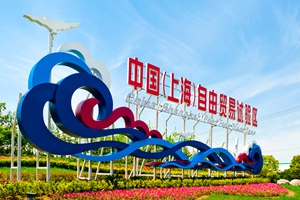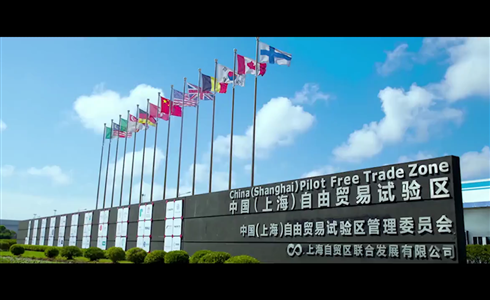Scope widens for foreign investment
China shortens the negative list, allows capital in agriculture, manufacturing
China will continue to facilitate foreign investment and trade while stimulating consumption amid a complicated and slowing global economy, the Ministry of Commerce said on Tuesday.
The ministry reported stable growth in the country's foreign trade, foreign investment and consumption in the first five months of 2019 despite slowing global capital flows and uncertainty in the international business environment, adding that some decisions by companies to move their industrial chains elsewhere was a natural market occurrence.
"The Sino-US trade dispute has brought a certain pressure on trade and investment, but it is under control," said Chu Shijia, head of the ministry's Comprehensive Department. "Over the past year, we have seen foreign investment grow in the backdrop of shrinking global investment and stable trade volume. So far in 2019, the growth rate of trade and investment has accelerated," Chu said.
Foreign trade grew steadily from January to May. The total volume of traded goods reached 12.1 trillion yuan ($1.76 trillion), up 4.1 percent year-on-year, the ministry said.
In the first five months, high value-added exports such as integrated circuits rose 25.1 percent year-on-year, metal processing machine tools 25 percent, electric buses 160 percent and wind power equipment 270 percent.
The government further liberalized the scope of foreign investment on Sunday by shortening its negative list, which allows more participation for foreign capital in areas such as agriculture, mining, manufacturing and services.
"The ministry is overhauling existing laws and regulations, and amending laws inconsistent with foreign investment regulations in order to ensure the foreign investment law is implemented on January 1," said Tang Wenhong, head of the Ministry of Commerce's Department of Foreign Investment.
"China has further reduced restrictions on market access by foreign investors and now allows foreign investment throughout China in sectors where it was previously permitted only in pilot free trade zones," said Paul McKenzie, managing partner of Beijing branch of Morrison & Foerster, an international law firm. "Strong headwinds will likely continue at least until the US-China trade relationship improves. Perhaps a more dramatic set of further amendments to the negative list will come out of the current trade talks," McKenzie said.
China's consumption was on firm footing. In the first five months, retail sales rose 8.1 percent year-on-year to 16.1 trillion yuan.
Companies from home and abroad have done well in recent months. For example, US sportswear company Nike reported a 24 percent growth in China market revenue in fiscal year 2019. Its annual revenue in China topped $6 billion.
Nike CEO Mark Parker said despite the trade dispute, "We are and remain a brand of China and for China", adding that the company has not seen any impact to date on its business from the trade conflict.
Contact the writers at renxiaojin@chinadaily.com.cn


 Infographic: 2018, a bumper year for Shanghai FTZ
Infographic: 2018, a bumper year for Shanghai FTZ  Charting growth of economic, free trade zones
Charting growth of economic, free trade zones  SHFTZ: Past Five Years?
SHFTZ: Past Five Years?  play
play 